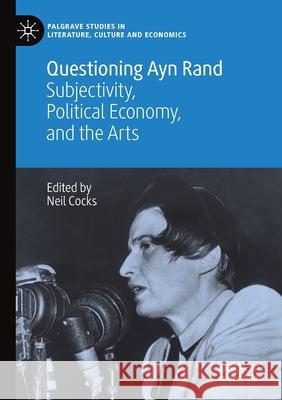Questioning Ayn Rand: Subjectivity, Political Economy, and the Arts » książka
topmenu
Questioning Ayn Rand: Subjectivity, Political Economy, and the Arts
ISBN-13: 9783030530754 / Angielski / Miękka / 2021 / 252 str.
Questioning Ayn Rand: Subjectivity, Political Economy, and the Arts
ISBN-13: 9783030530754 / Angielski / Miękka / 2021 / 252 str.
cena 402,53
(netto: 383,36 VAT: 5%)
Najniższa cena z 30 dni: 385,52
(netto: 383,36 VAT: 5%)
Najniższa cena z 30 dni: 385,52
Termin realizacji zamówienia:
ok. 22 dni roboczych.
ok. 22 dni roboczych.
Darmowa dostawa!
Kategorie:
Kategorie BISAC:
Wydawca:
Springer Nature Switzerland AG
Seria wydawnicza:
Język:
Angielski
ISBN-13:
9783030530754
Rok wydania:
2021
Ilość stron:
252
Waga:
0.30 kg
Wymiary:
21.01 x 14.81 x 1.35
Oprawa:
Miękka
Wolumenów:
01
Dodatkowe informacje:
Wydanie ilustrowane











